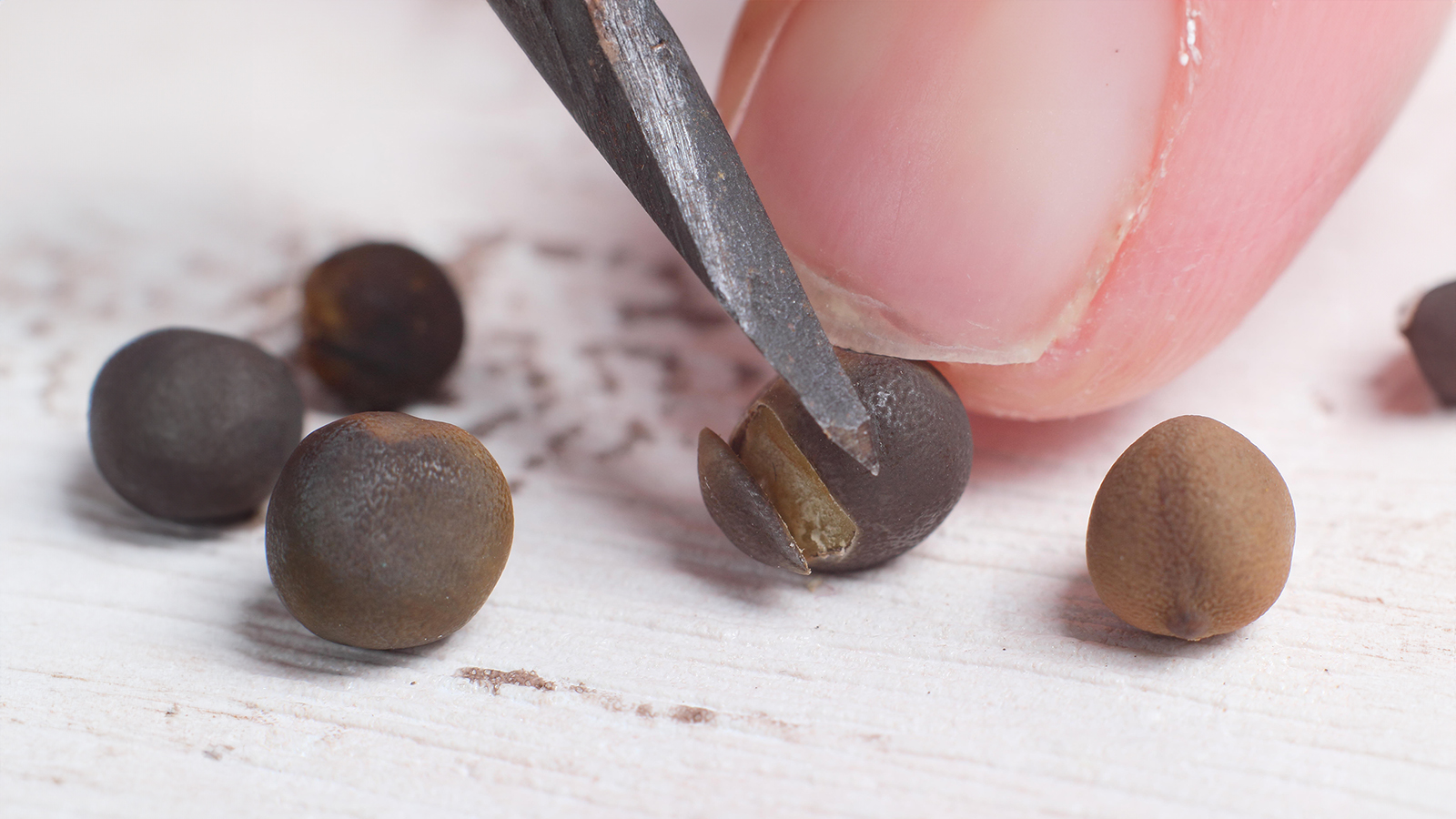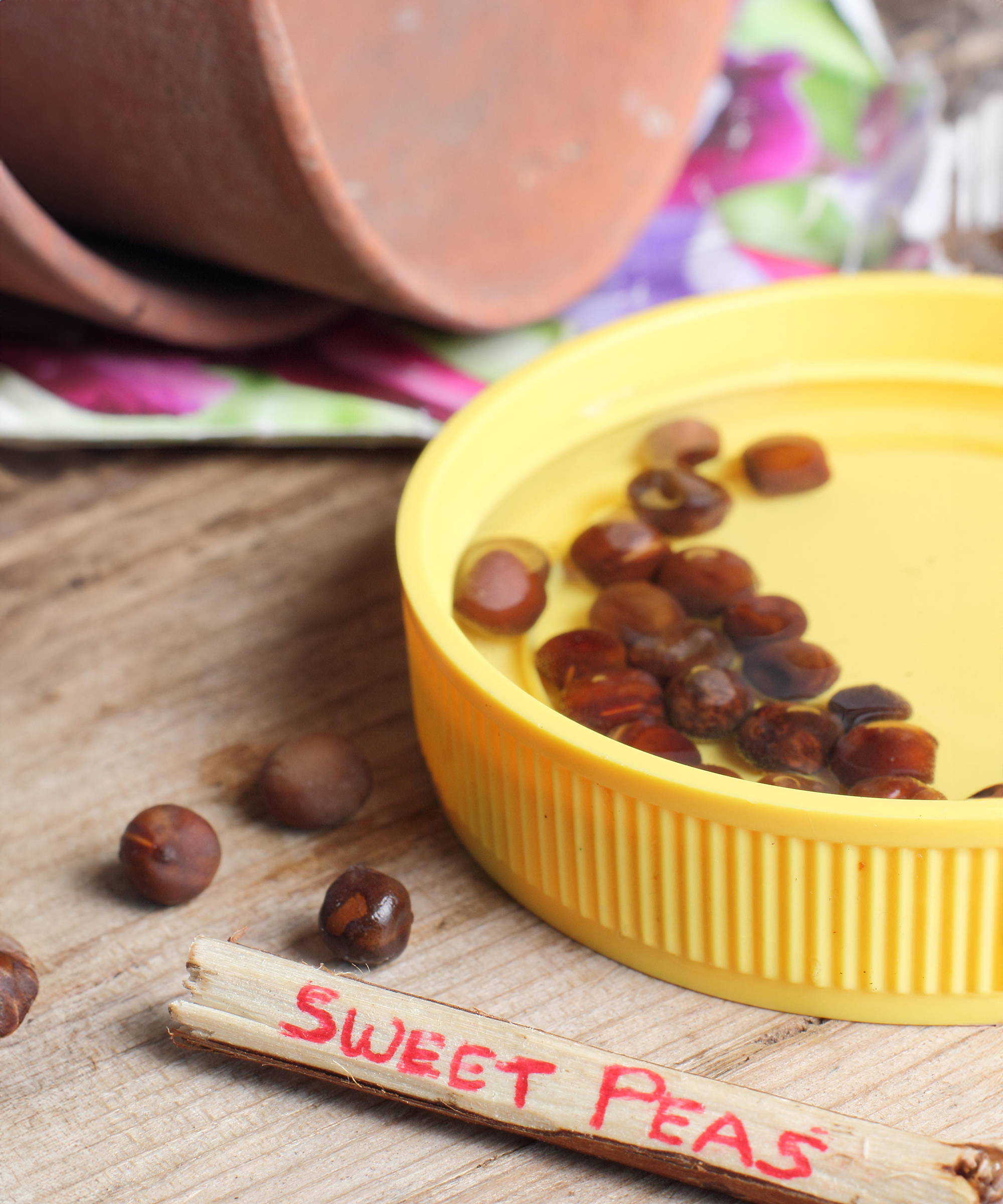How To Nick Seeds Before Planting To Boost Germination
Try this simple seed stratification trick to speed up germination for a variety of seed types.
Melanie Griffiths

Sign up for the Gardening Know How newsletter today and receive a free copy of our e-book "How to Grow Delicious Tomatoes".
You are now subscribed
Your newsletter sign-up was successful
Learning how to nick seeds is a valuable skill for all gardeners to master. While many seeds will grow with little help, others benefit from penetrating the hard seed coating. This process of seed scarification improves germination rates and speeds up sprouting, which might otherwise take many weeks. It's a particularly useful technique for growing flower seeds that have a winter dormancy period, but some vegetables can also benefit from nicking.
If you do nothing, some of the seeds will eventually open after being exposed to cold temperatures, warmth, or even passing through the digestive tract of birds or other animals. But waiting for nature to act allows little control for the home gardener. Knowing how to scarify seeds by nicking or other methods is an extra step in the seed germination process that allows you to plan your planting and make the most of the growing window.
What Does it Mean to Nick Seeds?
Nicking seeds involves making a small cut in each seed to break through the waterproof coating. When done before planting seeds, it allows them to absorb water and signals to the plant embryo inside to begin the germination process.
The process of nicking and then soaking seeds before planting jump-starts germination in a controlled way, meaning you can get your garden growing faster.
However, it is not the only way of giving seeds a boost. Other scarification methods involve grating or sanding the seeds to break the coating, cracking them with a hammer, using chemicals such as sulfuric acid, or boiling them in water.
You may also have heard of using cold treatment to stratify seeds. This can be used to achieve the same goal, as freezing seeds will simulate their natural dormant period and weaken the outer coating. It's widely practiced to germinate seeds of perennial shrubs, trees, and native wildflowers.

Which Seeds Need to be Nicked?
Seeds with an impermeable (waterproof) seed coat benefit the most from nicking. Large or hard seeds like those of beans, sweet peas, okra, and nasturtium often require scarification for optimal germination. Most plants in the tomato and morning glory families also have impermeable seed coats and will germinate better after scarification.
Sign up for the Gardening Know How newsletter today and receive a free copy of our e-book "How to Grow Delicious Tomatoes".
Seeds that have a low germination rate or that are scarce should also be carefully nicked to increase the chances that you’ll get them to sprout.
Check the seed packet information for guidance on whether seed scarification is recommended. If unsure, check the Gardening Known How growing guides for your chosen varieties of flowers, trees, shrubs, and vegetables.
How to Nick Seeds
You can nick seeds with the edge of a nail clipper, a nail file, or a knife. Alternatively, damaging the seed coating with sandpaper will achieve the same goal.
Many seeds have a hilum, a scar left where the seed was attached to the ovary inside the fruit. The hilum is easy to find on beans and peas. For example, the “eye” of a black-eyed pea is the hilum. Since the bean embryo is attached just under the hilum, it is best to nick the seed opposite this point to avoid causing damage.
Make as shallow a cut as possible on the seed, just deep enough to allow water to penetrate the seed coat. Be careful to avoid damaging the plant embryo inside the seed – you want to cut just through the seed coat while leaving the plant embryo and other structures within the seed unharmed.
After nicking, it is a good idea to soak the seeds for a few hours or overnight. Then, get them planted right away. Do not attempt to store scarified seeds, as they will quickly lose their ability to germinate.
More Seed-Starting Inspiration
- Not sure how deep to plant seeds? Get it right every time with this simple trick.
- Try these easy recipes for making the perfect DIY seed-starting mix – save money and grow healthier seedlings.
- Boost your growing potential by germinating seeds in paper towel: the easy, no-mess method.
Ilana Goldowitz Jimenez is a scientific and agricultural writer with a B.S. in Plant Sciences from Cornell University and a PhD in Chemical Biology and Infectious Disease from Harvard University.
- Melanie GriffithsEditor in Chief